THE TRIP SOUTH
– PART 2
We
spent a very relaxing week at Soubise which is a delightful, quiet village on
the south bank of the river Charente.
Wandering up to collect the bread each morning , then a few alterations or
repairs with the help of the lads at the yard, especially trying to trace one
particularly annoying little leak; lunch in the cockpit, perhaps a short siesta
and then a drink with Philippe and dinner either on board or at the little
restaurant on the quayside that cook mussels so many different ways. This was
the first time we had stopped for more than two days since leaving Southampton and it was a pleasure.
One
of the reasons for our protracted stay was a particularly nasty low stomping
across the Bay of Biscay. Apart from wind we
were given another spectacular lightning storm. The French seem to do them so
well.
The
Charente is navigable up to the old naval town of Rochefort and it is always surprising how
many large ships make their way up this fast-flowing, shallow and none-too-wide
river

See what I mean?
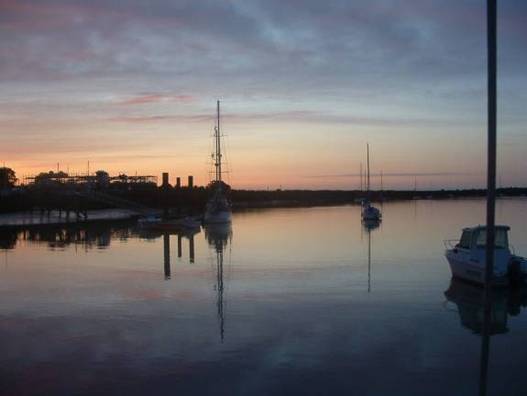
Sunset at Soubise
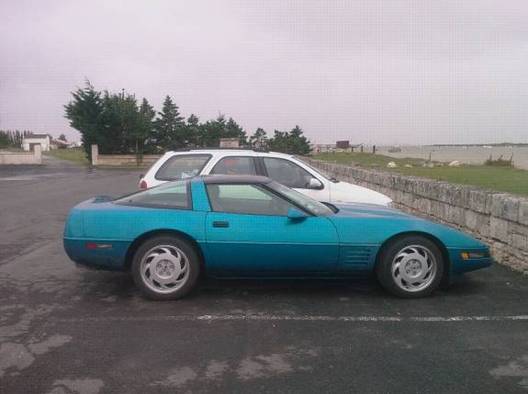
Philippe’s new car, a 1993 Series 4 Corvette Stingray
– Eat your heart out Andy Brookes
We
left Soubise on the afternoon of Friday 12th September and had a
fast, but mixed sail to La Coruna on the
north-east corner of Spain.
We covered 330 miles in about 40 hours, and that included flat calms, gusts to
30 knots, and some beating towards the end. It was mostly in a NW 4-5, with a
big, big swell from the north. Speeds hit 16knots a one stage, just with the
jib and 2 reefs. Life gets very noisy down below at these speeds, though the
boat is perfectly comfortable.
Both
nights at see were with a clear sky and nearly full moon, which does enliven
the spirits in the middle of the night. We watched the sun go down, wondering
if it is possible to see the ‘green flash’ so fabled in the Caribbean. Just as the last sliver of sun went behind the
horizon we were treated not to the usual almost instantaneous flash but a
prolonged very green couple of seconds. I certainly had never seen the like. So
the green flash does exist and it’s better in Biscay!
We
arrived at La Coruna
on Sunday morning. We first called at the ‘revamped’ Marina A, but
it was barely finished and was overun with gulls and their mess. We then went
around into the older but nicer Darsena Deportivo. Even tucked well into the
harbour the marina gets a considerable surge from the swell outside. However
whilst all the Monohulls were clanking and banging, Snow Leopard was serenely
still.
La Coruna is a lovely town and we thoroughly enjoyed
our 3 days there. We walked around the town, chatted to fellow yachties, found
a very nice internet café and ate a very nice seafood dinner with Bob and
Elaine, fellow members of the Royal Southampton who were on their way south to
lay-up their boat, ‘Pipistrelle’, in Portugal.
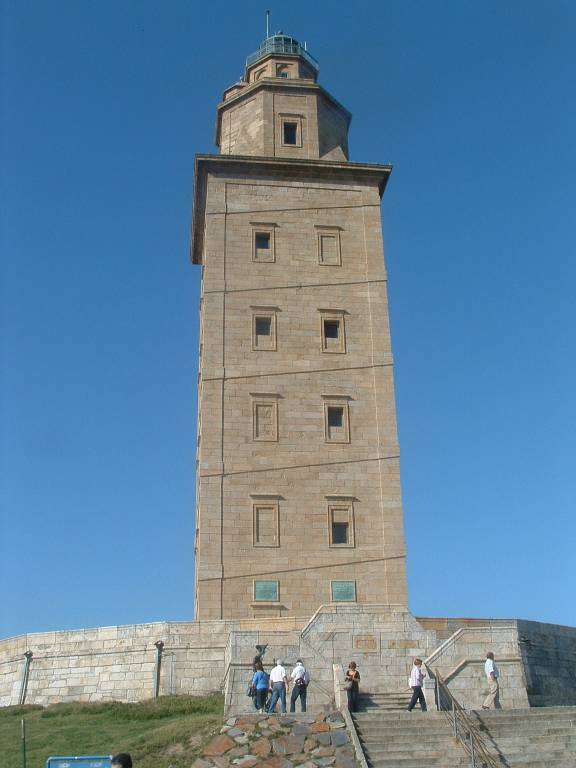
The Torre de Hercules, La
Coruna, the oldest working lighthouse in the world,
first constructed by the Romans
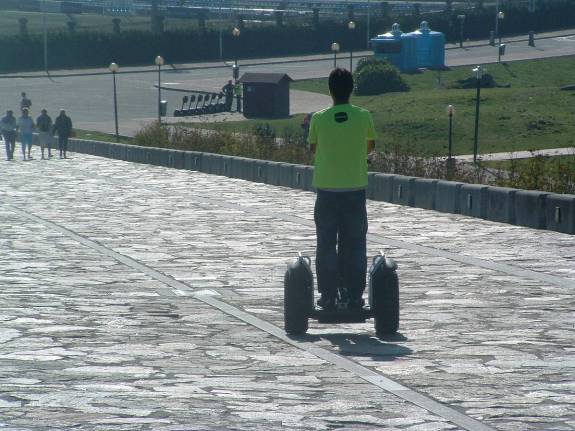
Ideal boat transport. I want one!
From La Coruna the next short
leg was around the infamous Capes Torinana and Finisterre on the aptly named
Costa Morte. Not on this occasion though – we motored the whole way
without a breath of wind to anchor at Camarinas in the first of the Rias after
Finisterre. Rather a disappointing village and a smelly anchorage from the
local fish factory.
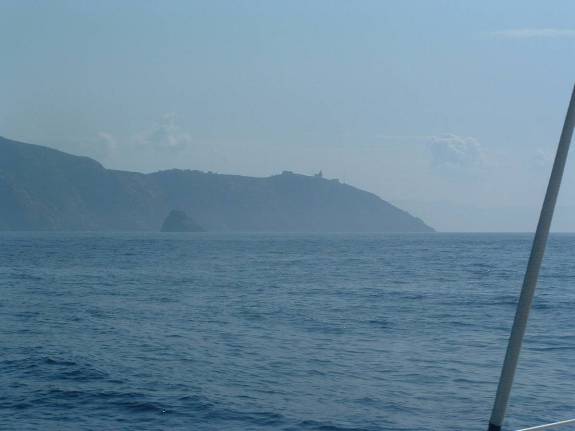
Cape Finisterre in benign mood
By
now the weather was noticeably warmer, but still with an autumnal chill in the
evening, so ever southward to Portosin in the Ria de Muros. Whilst the marina
at Portosin was pleasant the town was nothing special, but the main reason to
stop here was to visit Santiago de Compostela.
First
one bus to Noya, then another to Santiago
(I love travelling by bus if you have the time). I knew about the cathedral and
the pilgrims that still make their way to Santiago
in huge numbers, but I did not expect such a beautiful medieval city. Although
touristy, Santiago
has a wonderful atmosphere, full of excitement and with such fantastic
architecture.
We
got into the cathedral just before midday mass. It was an extraordinary
experience. The church was packed and there was such an atmosphere of
expectation and excitement, culminating with the giant incense burner being
swung to the ceiling by eight burly priests. Stunning. Go there if ever you get
the chance
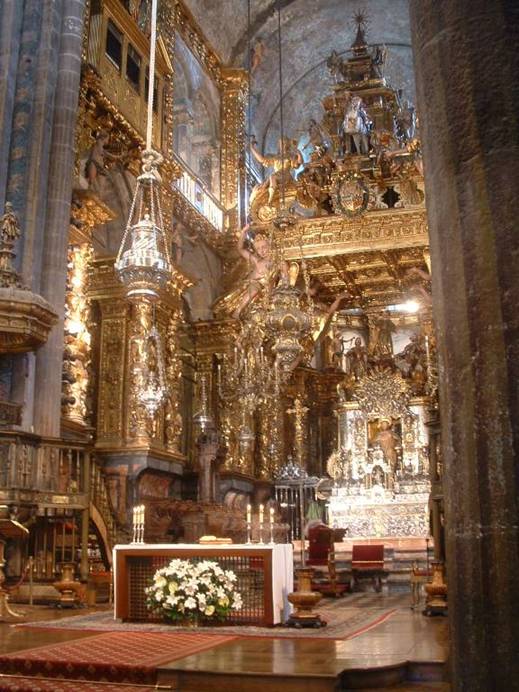
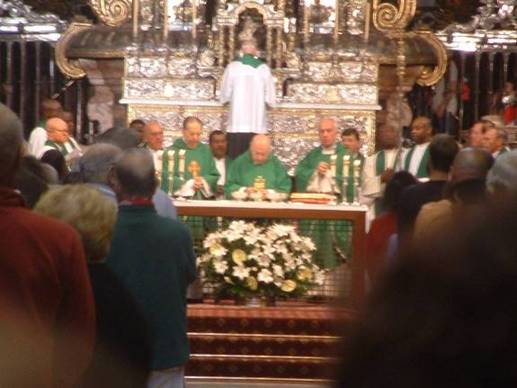
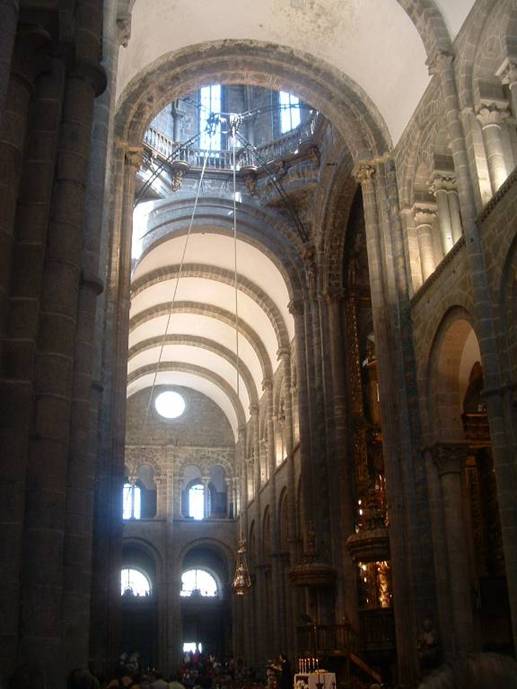
The huge incense burner in centre is swung right to the ceiling
of the cathedral
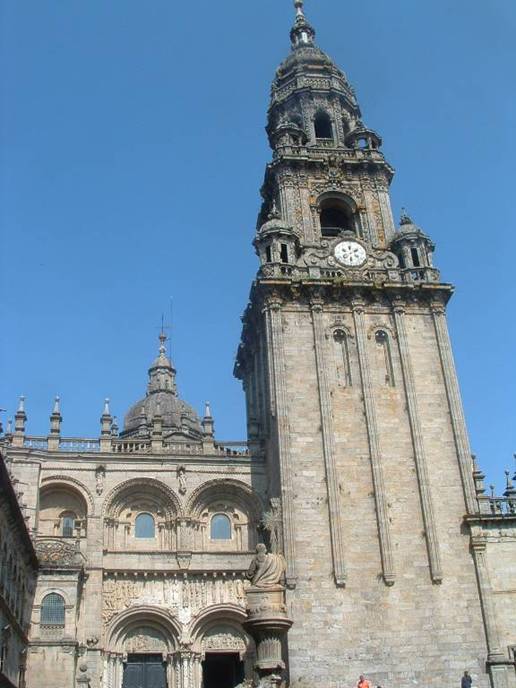
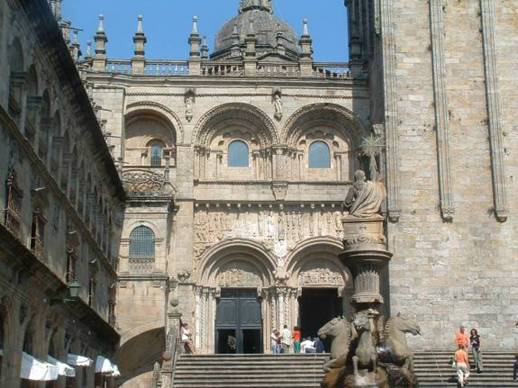
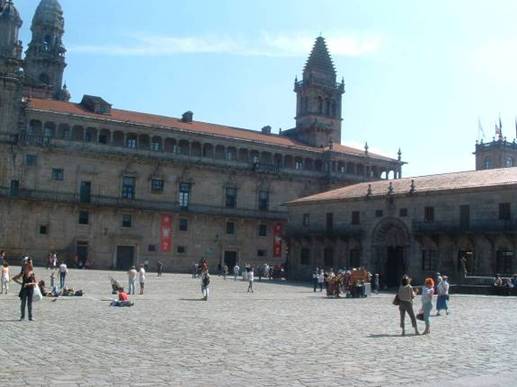
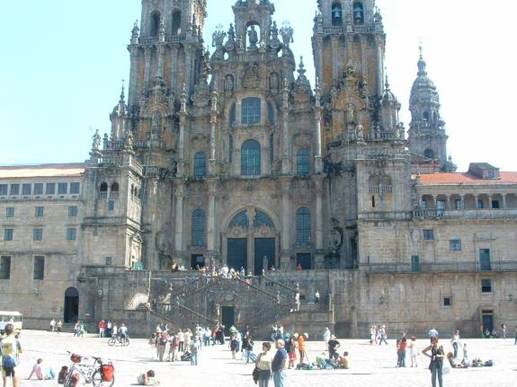
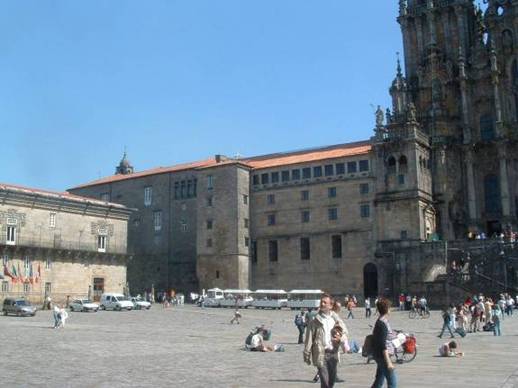
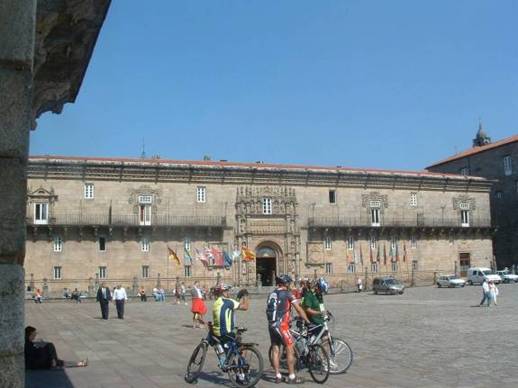
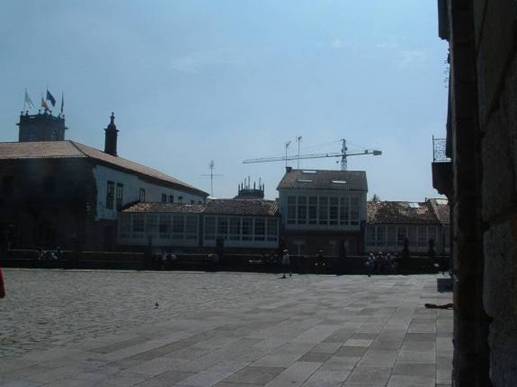
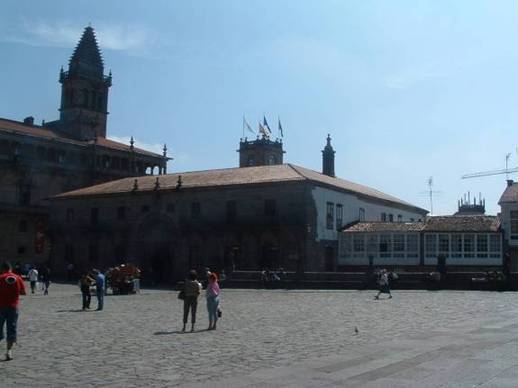
The
day after our visit to Santiago
we had a short sail round to the Ria de Pontevedra. We had been recommended a
visit to the restored fishing village
of Combarro at the head
of the Ria. Both pilot book and charts indicated a small crowded harbour, with
room to anchor outside, so we were more than a bit surprised to find a
full-blown new marina occupying the whole of the harbour. I think we were their
first visitor!
Combarro
is really pretty – the Spanish equivalent to Clovelly,-. with tiny narrow
windy streets and alleyways down to the waterside. It is a real
‘lived-in’ fishing village and although there are a number of tourist
shops they have not taken over. There are also many bars and restaurants
serving seafood of all types.
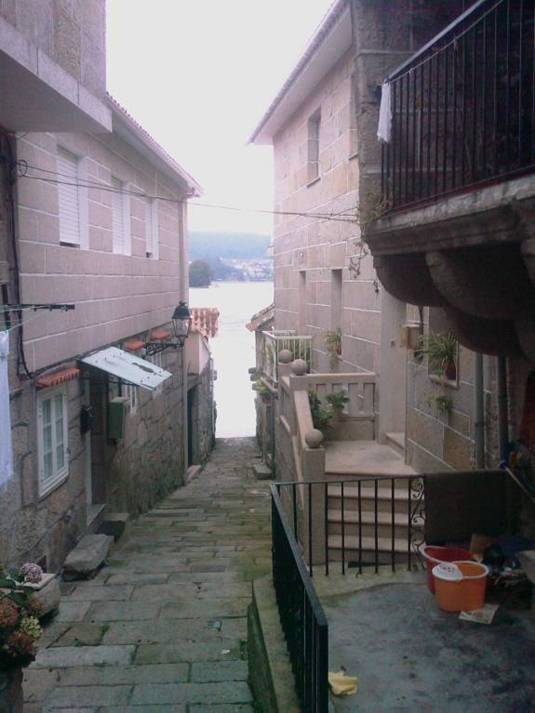

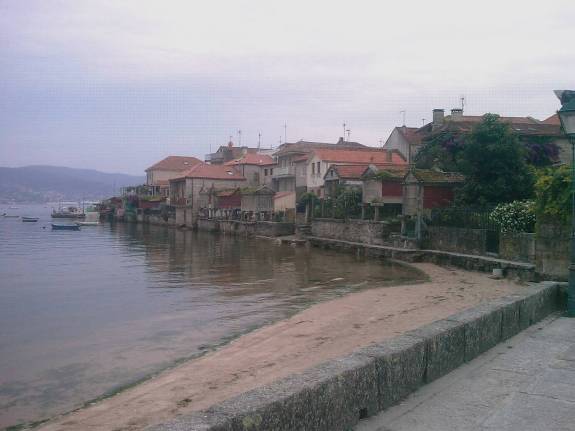
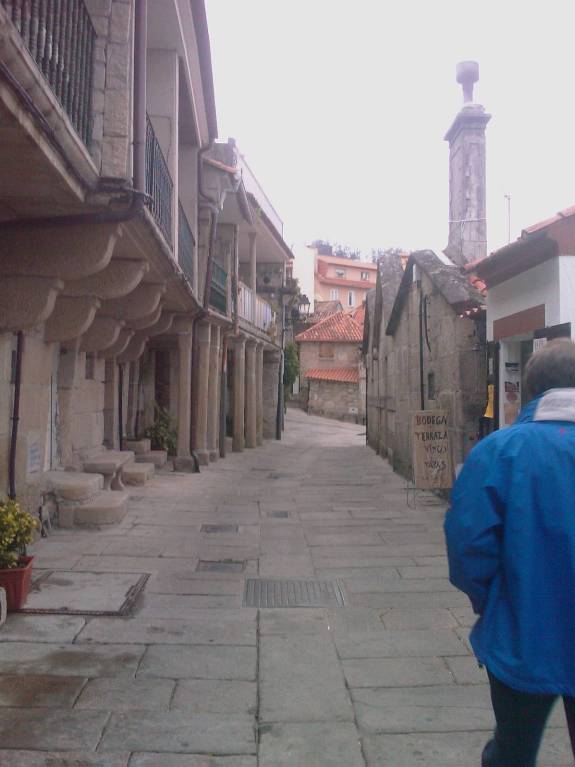
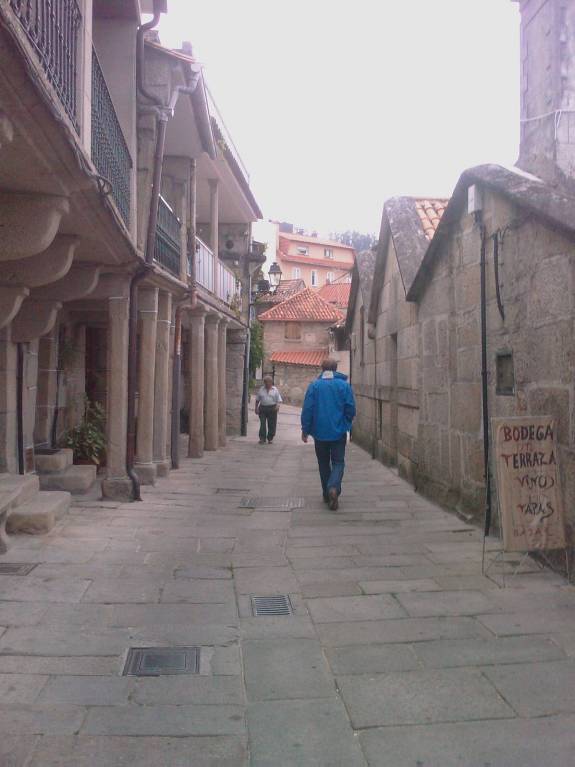
Views of Combarro
The last
sail in Spanish waters was to Bayonna, an old favourite of mine and a required
stop at the yacht club there whenever transiting this coastline.
En
route we anchored off the island
of Cies at the entrance
to the Ria de Vigo. The island is a nature reserve, and a walk around was
beautifully peaceful. Lucy even went for the first swim of the voyage.
It’s still far too cold for me!
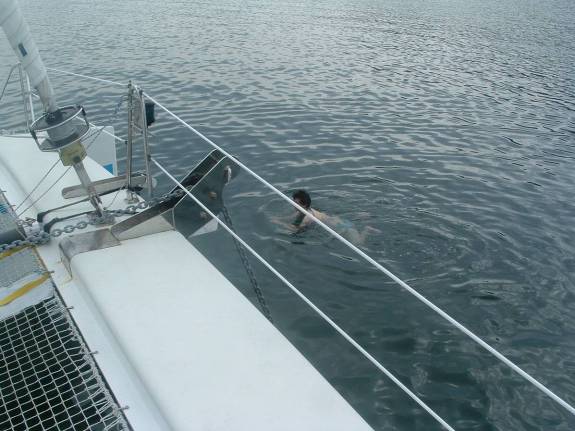
First swim at Isla Cais
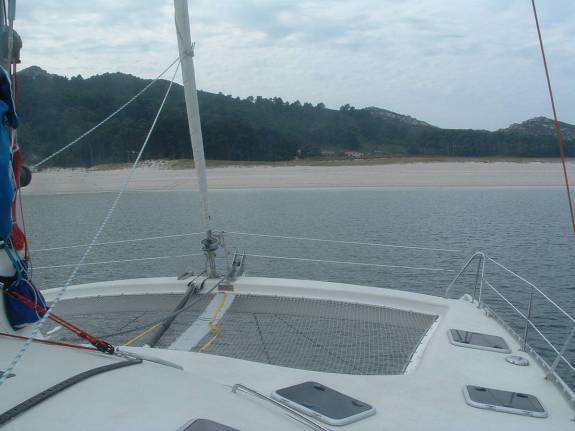
Anchorage off Playa de Arena, Isla Ceis
Since
I was last in Bayonna 20 years ago they have built a big new marina, but the
yacht club is still very welcoming and, as Viv remembers, they still serve the
best gin and tonic at the splendid bar overlooking the port.
Bumped
into the Dutch couple Martin and Jani (who had been to Santiago with us), on their boat
‘Sem’. They are ambling slowly down to the Algarve for the winter
Had
an excellent meal in a small bodega in the old town
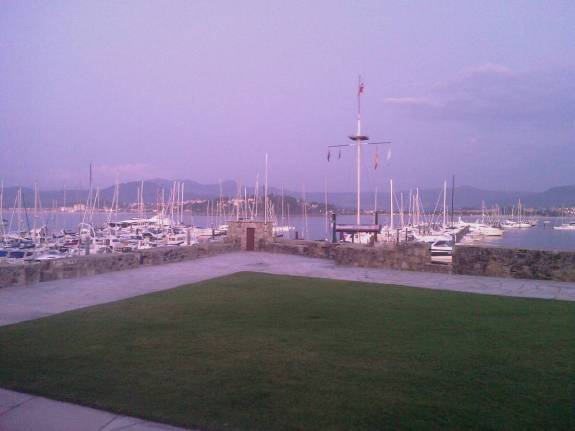
Bayonna from the yacht club bar
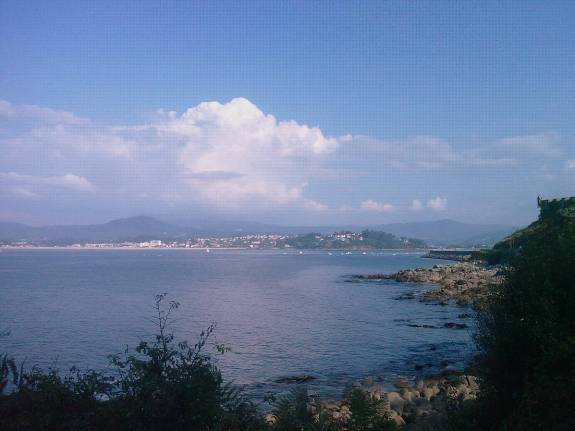
Bayonna
To Portugal
– fist stop overnight at Povoa de Varzim. We were not overly impressed ,
except with the price of a night at the marina – 8 euros. We hoped this
would be a taste of things to come, but unfortunately when we reached Cascais
at the mouth of the River Tejo(Tagus) after a
very pleasant overnight sail we were back with expensive marina prices.


























